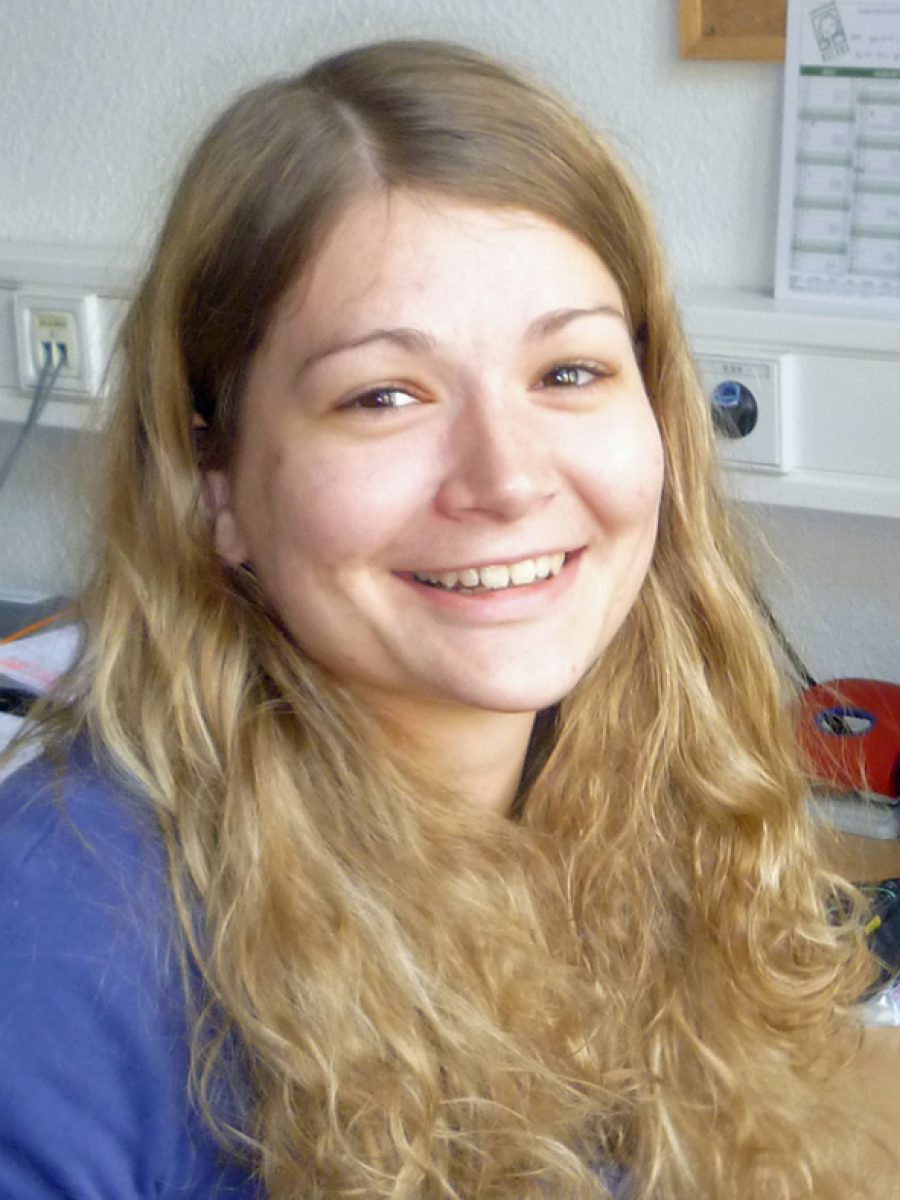
Henrike Indrischek
Exchange graduate student, Pharmacology
Exchange graduate student from the Institute for Bioinformatics, University of Leipzig, Germany
Henrike received her BS and MS in Biochemistry at the University of Leipzig, Germany.
Currently, she is a PhD student in the groups of Peter F. Stadler and Sonja J. Prohaska
(http://evodevo.bioinf.uni-leipzig.de/people.html).
Research Description
Henrike studies the evolution of different groups of proteins using computational methods. This involves, among other things, high-quality protein annotation, building of phylogenetic trees, and detection of important residues with other phylogenetic methods.
In a collaborative project with my lab, she studies the evolution of arrestins in vertebrates. Based on these results, she proposed to study the interaction of clathrin and arrestin in my lab during an internship this summer. Here, she uses classical protein biochemistry methods to purify clathrin cages, express arrestins, and carry out binding assays.
Paper from the lab
Indrischek, H., Prohaska, S.J., Gurevich, V.V., Gurevich, E.V., Stadler, P.F. Uncovering missing pieces: duplication and deletion history of arrestins in deuterostomes. BMC Evol. Biol. 17(1): 163; doi: 10.1186/s12862-017-1001-4 (2017).
Other papers
1. Henrike Indrischek, Nicolas Wieseke, Peter F. Stadler and Sonja J. Prohaska: The paralog-to-contig assignment problem: high quality gene models from fragmented assemblies, Algorithms for Molecular Biology 2016 Jan;11:1.
2. Corinna Höfling, Henrike Indrischek, Theodor Höpcke, Alexander Waniek, Holger Cynis, Birgit Koch, Stephan Schilling, Markus Morawski, Hans-Ulrich Demuth, Steffen Roßner, Maike Hartlage-Rübsamen: Mouse strain and brain region-specific expression of the glutaminyl cyclases QC and isoQC, Int J Dev Neurosci. 2014 Aug;36:64-73.